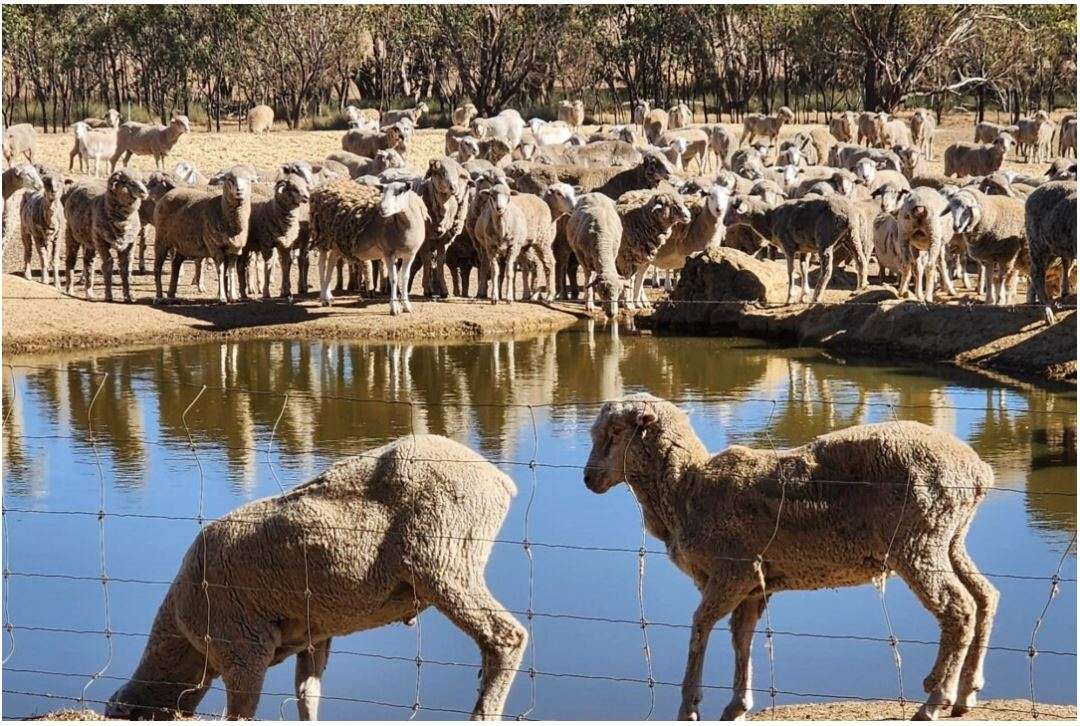
Live sheep exports by sea have been banned by the Albanese government but while animal welfare proponents rejoice, groups that represent farmers say their futures are now at risk.
The ban, which was an election promise, comes into practice from May 1, 2028.
Agriculture Minister Murray Watt announced an $107 million funding package to support exporters as the trade is phased out.
Mr. Watt said redeploying agricultural workers away from the live export market into other areas that include an expansion of the chilled meat sector would be aided by a $64.6 million from the total package.
Live Export Controversy
Sheep are live exported to create self-sufficient herds in countries suffering from food shortages owing to climatic conditions.
Some countries prefer to import live animals for cultural or religious reasons. In some Middle Eastern countries, there is a preference for freshly slaughtered meat during religious festivals.
In some cases, it may be more cost-effective to export live animals than processed meat, especially when considering factors such as transportation, processing, and storage costs, and some regions may lack the infrastructure or technology for processing and storing meat, and associated quality control.
Measures to improve the on-sea welfare of animals Exporter Supply Chain Assurance System (ESCAS) was created in 2011 by the Australian government.
However, the issue has been a contentious one for several years and the industry has faced criticism over the health of animals subjected to during long sea voyages to destinations in the Middle East and Southeast Asia which were plagued by high mortality rates.
Reaction From Farmer Lobby
The minister’s announcement however did not go down well with those tasked with representing farmers across the country.
Centre-right political party The Nationals, which positions itself as a representative for rural Australia, has previously defended the validity of the live export trade.
Party leader David Littleproud told reporters in 2018 that the whole industry did not need to be culled on the back of the 2018 incident.
Mr. Littleproud then advocated the use of (now mandatory) observers on the boats to “eradicate this type of behaviour going forward.”
Speaking on the announcement of a total ban, Mr. Littleproud labelled the package as an “insult” despite the Government’s commitment to the cash injection.
“Industry has never had the science explained to them why they are closing the industry down,” he said.
“Compensation of just $64.6 million is an insult, especially when Meat and Livestock Australia figures show live sheep exports were 84,430 in December 2023, which was a 177 percent increase in comparison with November export (58,732) and a 44 percent increase on December 2022 exports (30,531).”
Mr. Littleproud said farmers would prefer to forgo the package to keep their livelihoods going, and added that any future centre-right Coalition government would keep the status quo if elected in next year’s federal election.
Meanwhile, the National Farmers Federation (NFF) said the government’s announcement to end live sheep exports in four years has left farmers feeling “shocked.”
The group says it also ignores industry advice that such a rapid timeline would be a “catastrophe” for farming families and called the compensation package “pitiful.”
Mr. Mahar said the ban would simply increase demand for live sheep from countries with less vigorous animal welfare standards.
Live Meat Exports Also Banned by New Zealand
Meanwhile, across the ditch, meat exports are New Zealand’s primary industry. Live cattle exports to the rest of the world totalled $255.89 million in 2020, making up 0.2 percent of all agriculture revenue since 2015.
The biggest recipient was China which received 113,000 cattle in 2020, returning $255.89 million to the country’s economy.
On April 14, 2021, the Ardern government announced an amendment to the Animal Welfare Act 1999 which effectively banned the export of livestock (cattle, deer, sheep, and goats) by sea.
A two-year transition period was granted for the Ministry of Primary Industries to implement a total ban under primary legislation, and the practice was completely banned on April 30, 2023.
“At the heart of our decision is upholding New Zealand’s reputation for high standards of animal welfare,” then-Agriculture Minister Damien O’Connor said at the time.